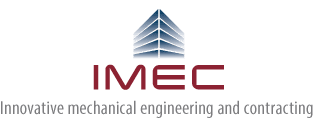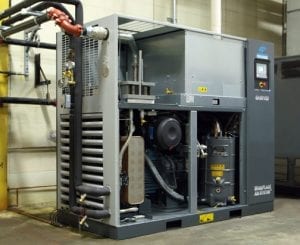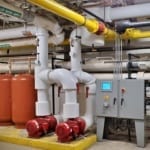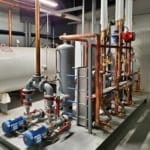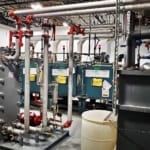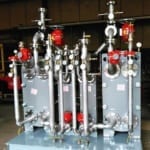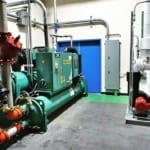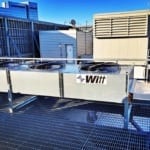The most familiar concept of co-generation is using a generator to make electricity and using the waste heat for other thermal usages. This form of cogeneration is more accurately described as Combined Heat and Power – CHP. However, by definition, this is only one form of cogeneration.
Cogeneration can be any number of combinations, using compressed air, hydraulics, chillers, heat, or cooling.
For example, in one case, we captured 100% of the heat rejected from a high efficiency air compressor and generated hot water up to 173 °F for process use. In another device, useful hot water is made simultaneously while chilling other products thereby capturing and utilizing all of the energy input to the system.
At many customer sites, existing machinery can be converted into co-generation using in-place infrastructure. With engineered modifications, major efficiency improvements have been achieved.
State governments like Massachusetts are encouraging the design and implementation of on-site “co-gen plants” in which waste heat from mechanical processes is recovered locally at the facility and used to generate thermal energy for processes such as domestic hot water, laundries, wash downs, heating boiler feed water, sanitation, CIP, pasteurizing, metalizing, paper production, etc. Essentially, it is a sophisticated process of recycling energy.
As with most mechanical engineering processes, understanding the “co-gen” concept is relatively easy. The devil is in the details.
Execution is crucial because each plant’s processes and needs are unique. The biggest challenge is that a manufacturing plant’s processes and use of electricity are continuous, but the facility’s production of excess heat is asynchronous. Thus, the excess heat needs to be captured and stored. This requires creativity, and companies like IMEC have refined the process by devising solutions to capture and store excess heat more efficiently. Be mindful to hire a mechanical engineering firm with experience both in co-gen plant creation and utility company rebate management.
State-funded utility incentives are available to aid in the implementation of co-gen projects, bringing the simple payback of the projects below 2 years in most cases.
IMEC is an authorized Project Expeditor for National Grid and works closely with other utilities.
Join IMEC’s Mailing List
[ctct form="1828" show_title="false"]Complimentary Energy Efficiency Evaluation
SPECIAL OFFER
Learn about how our scientific approach to sustainable mechanical engineering will take your facility into a future of ultra efficiency.
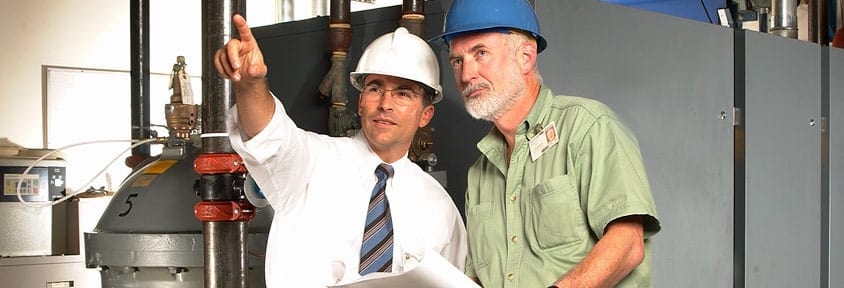
Our engineers will dramatically improve your plant efficiency and help you take advantage of utility company rebates to cover a portion of the cost.
Through a combination of generous utility company rebates and IMEC’s high-efficiency engineering solutions, you’ll realize the benefits of streamlined mechanical systems that produce huge annual power savings.
We recently completed a project that is saving a customer over $1,100,000, annually.
Even if you don’t think you need a new mechanical system, it’s likely that we will discover a facet of your facility’s efficiency that can be improved dramatically. As an Authorized National Grid Project Expeditor, we also manage the utility rebate process for you.
Submit this form to receive your Complimentary Energy Consultation and Systems Evaluation:
- Plant walkthrough
- Identification of energy-saving projects
- Estimated ROI / Payback time
- Projected utility company rebates
An IMEC sales engineer will contact you to arrange a Complimentary Energy Consultation and Systems Evaluation.
